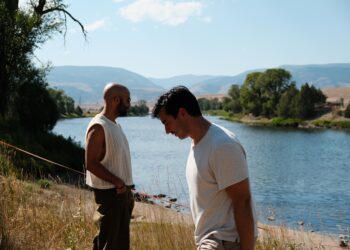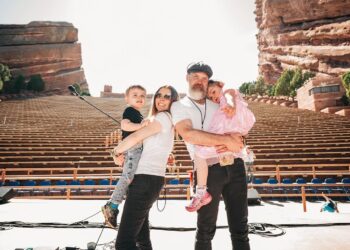
By Pepper Trail WRITERS ON THE RANGE
This spring, even as we all were cooped up, the world seemed to wake up. It happened when I drove to Oregon’s Klamath Basin to witness the incredible abundance of migrating waterfowl that gather in the national wildlife refuges. Ducks were everywhere with pelicans, swans and cranes and, above all, immense flocks of snow geese.
At one point, a bald eagle swooped low over a mass of resting geese spurring all to take flight—tens of thousands of birds filling the sky—until the whole basin seemed to ring like a bell with their beating wings, their echoing cries.
Surrounded by such abundance, what else could I think but that the world is alive. That seems like a very long time ago as all our lives have been turned inside out by the coronavirus. We are out of school or out of work or out of money—or all three. No sports, no movies, no gatherings with friends.
In late March, our son in San Francisco came down with COVID-19 symptoms: a dry cough, fever, aches and fatigue. There were no tests to be had, so he self-quarantined in his tiny apartment. It was an anxious week, but by the end of it, he recovered, and we will probably never know if he was infected by the virus.
The world is alive, alright, but the pandemic has turned this from a rather glib platitude into a less comforting truth.
It is well established that this coronavirus is a zoonosis, a disease transmitted to humans from animals. It is believed to have originated in bats, and made the jump to humans via wildlife sold at a market in China. This is the same route followed by the earlier SARS outbreak, which transferred to humans from civet cats sold in wildlife markets.
Worldwide, the consumption of wildlife is still occurring at an immense scale—everything from snakes and turtles to birds, bats and monkeys. Much of this trade is illegal, but it continues unabated, and involves billions of dollars per year.
The global human population is approaching 8 billion. Almost every acre of arable land is under cultivation, and human domination of the world’s biosphere is so complete that many scientists say we have entered a new epoch, the Anthropocene. Yet somehow we continue to take everything we desire from nature as if we were still hunter-gatherers clinging to a precarious existence.
We would do well to remember this: the world is alive. And it will not submit quietly. This COVID-19 pandemic is actually relatively mild. It has a mortality rate of “only” about 3 percent. Can we doubt that there are more zoonoses out there, waiting to jump from animals to humans?
As population density increases, as environmental contamination, stress, and unhealthy diets weaken our immune systems, there could be worse pandemics to come. To protect ourselves from such predictable catastrophes, every country in the world needs to adopt and enforce an immediate ban on the sale of all wild-caught mammals.
That will be only a first small step. Climate change and the conversion of wild ecosystems, if unchecked, threaten to collapse the global bounty of “nature’s services.” These unpaid-for gifts reflect the workings of a healthy biosphere, and include the planetary water cycle and pollination of our food crops. It is now all too clear that the Earth’s continued benevolence is something that we must earn by our mindful care.
The conservation biologist E.O. Wilson has called for a “Half-Earth Pledge”: that we conserve half the Earth for biodiversity, ensuring that species and people have the space they need to thrive together. This will require us to acknowledge the self-evident fallacy of unlimited growth in human population and consumption. Well, better sooner—with foresight—than later—in the midst of catastrophe.
The COVID-19 pandemic is a long overdue wake-up call. Throughout human history, we’ve too often seen the natural world as separate from ourselves, as both a relentless enemy and an inexhaustible treasure house. That must change. If we are to survive, we need to enter into an entirely different relationship with the world. No relationship can be based only on the desires of one partner. Respect must be given. Consequences must be considered.
The world is not a thing to be used. It is our indispensible partner in human survival. It is alive.
Pepper Trail is a contributor to Writers on the Range.org, a nonprofit dedicated to spurring lively conservation about the West. He is a conservation biologist, photographer and poet who roams the Klamath-Siskiyou Bioregion from his home in Ashland, Oregon.














